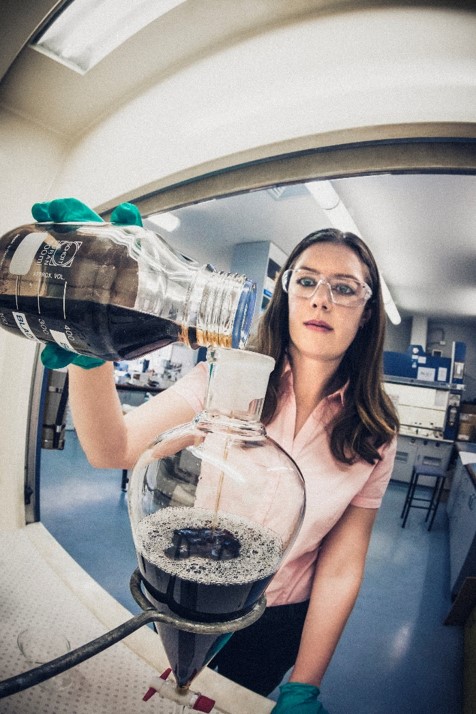
EMCR Forum interview with Renee Webster
@Reneewebs

Dr Renee Webster
Describe a typical day in your job.
My time is split between working at the bench in the lab and at my desk. I do a mix of research work as well as scientific and technical support for the Australian Defence Force. This side of the job can be incredibly varied and interesting. Providing scientific advice that helps those serving our country to stay safe and do their jobs effectively is satisfying and rewarding.
What are the most challenging aspects of your job?
Being a research scientist and a public servant comes with a unique set of challenges that academic scientists don’t face. We don’t have the same degree of academic freedom and the bureaucracy can be a real grind. On the plus side we don’t have to supervise students, teach or apply for grants (although some of us still do)!
What is the most enjoyable aspect of your job?
Being a research scientist is inherently enjoyable—I often marvel that I get paid to find stuff out and I try to remember this when things do get frustrating. The job stability where I am is also a perk, now that the scientific workforce appears to be moving to shorter contracts and casualisation. The flexible working conditions and work–life balance I have are great. There is strong support for staff to undertake further education and training; I was able to do my PhD while working full time. I also enjoy the travel component of my work, attending conferences and visiting military bases, although this is harder these days with a toddler at home.
Any advice for EMCRs wishing to pursue a career in this area?
Often government research roles are not advertised through avenues like Seek. If you’re interested in working in the public service, you will have to visit the websites of the departments and agencies that interest you and sign up for alerts. Some areas like Defence Science and Technology have specialised entry programs for people with PhDs and advanced degrees. Other foot-in-the-door opportunities aren’t always widely advertised either, so check if there are work experience, internship or short-term programs available. Networking is also important, talking to a government scientist at a conference or meeting will likely give you additional information and perspectives.
© 2026 Australian Academy of Science